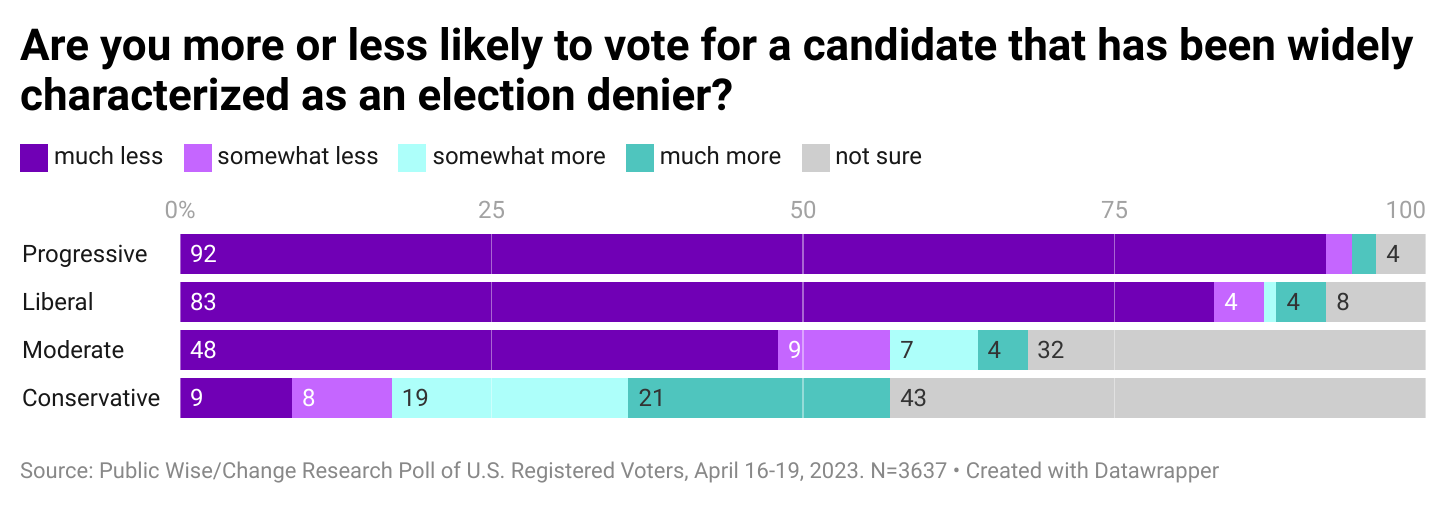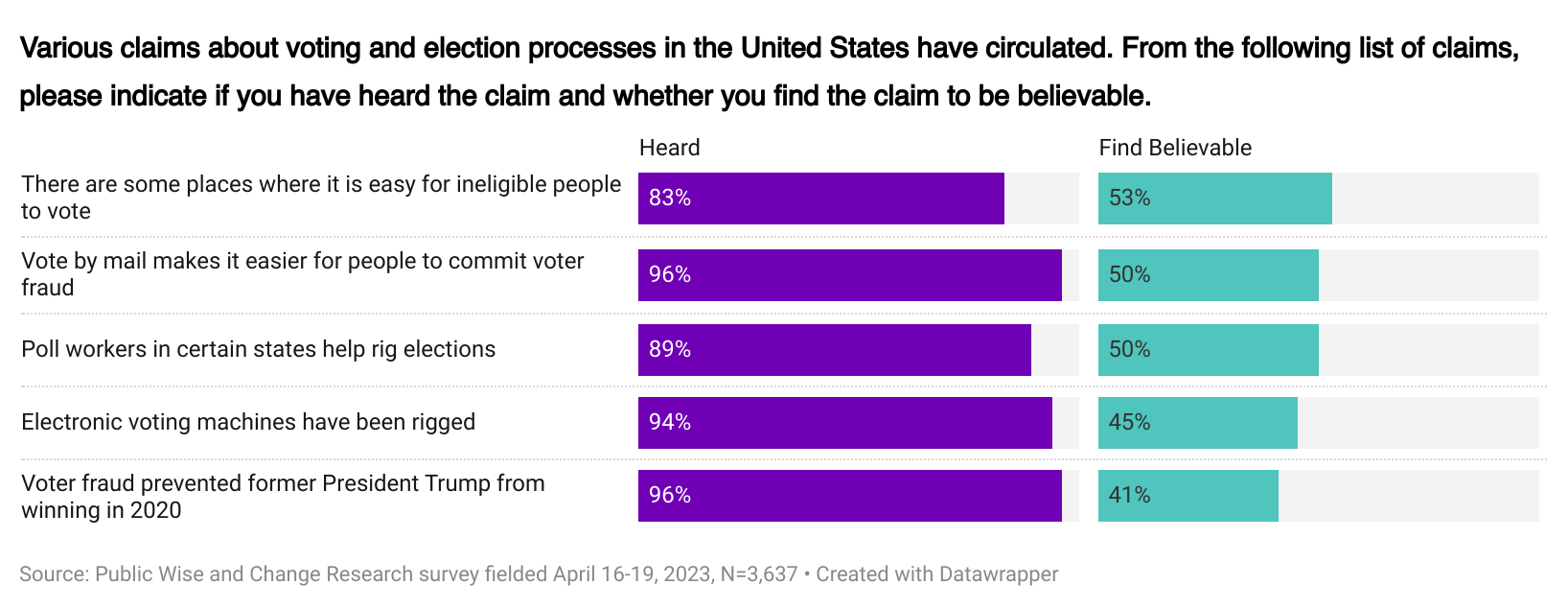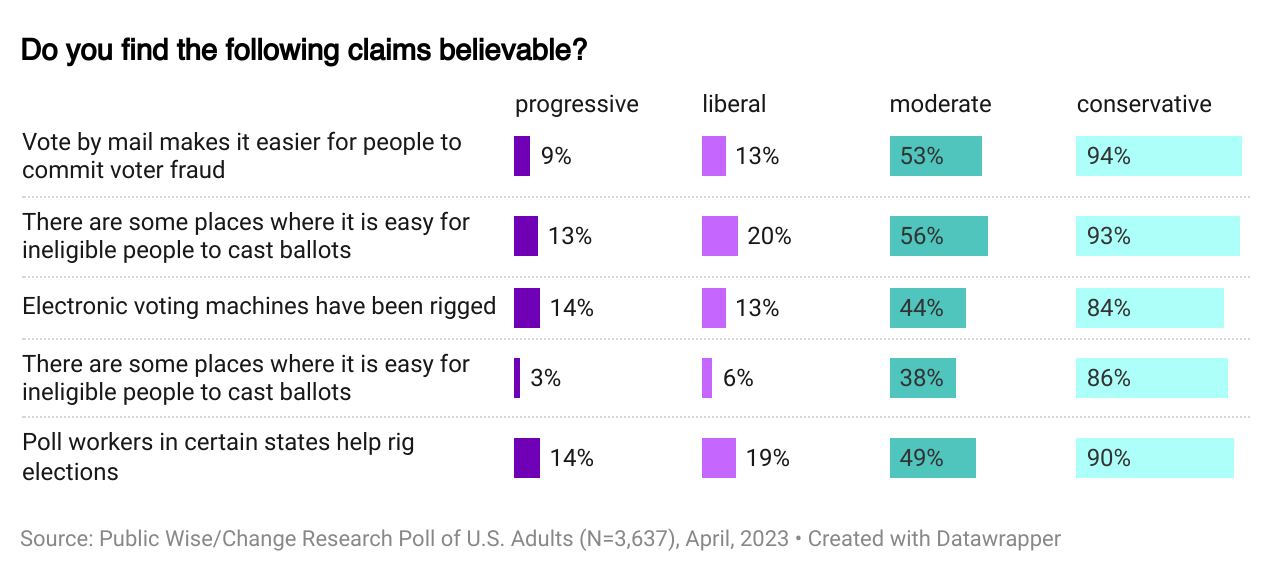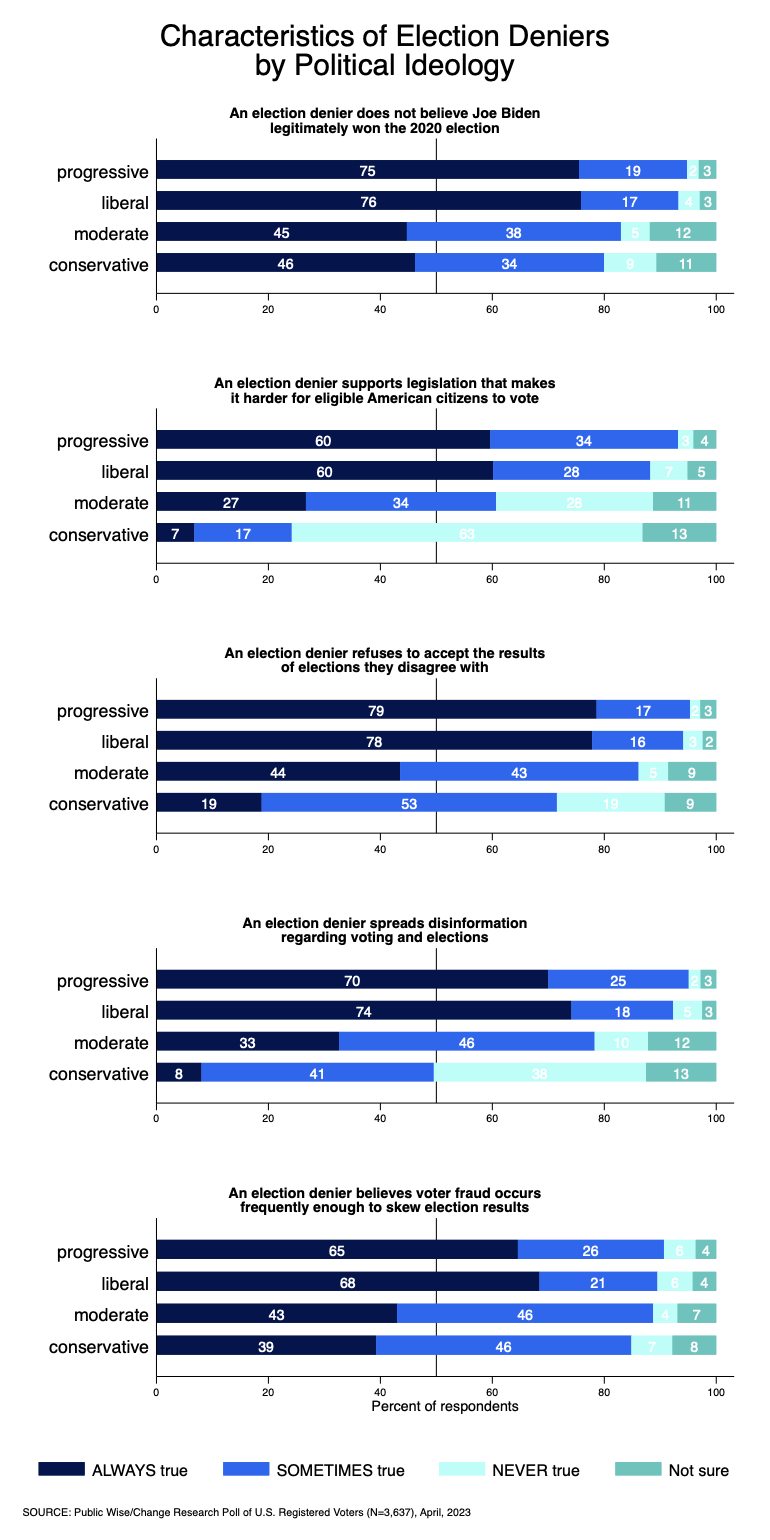What the AI fight is really about: By now it's clear that a lot of the news about AI commerce boils down to mostly or completely a single point of view: war, brass knuckles capitalism vs. the public interest. The brass knuckles capitalism vs. the public interest. The 👊 crowd condescendingly and mendaciously tell us that what's good for them is good for us. Maybe so, but from what I can tell if what's good for those elites gives them X, what most of us peons get get is ~0.01X to 0.0001X - literally zero depending who we are, wherein we means honest people who try to play the game by the rules.
From the wealthy elite point of view, why would me or anyone else say such a horrible, terrible awful thing? Because it's true, that's why:
The lesson is obvious: what's good for the wealthy elites and those who claw their way into the wealthy class usually isn't very good for us because (i) power comes with wealth, (ii) low power comes with anything less than wealth, and (iii) power and wealth work in their own interests which is mostly getting more power and wealth. In my opinion, more power and wealth usually (~98% of the time) comes at the expense of the rest of us.
I posted about this a couple of days ago in a bit called
The war of mindsets that control AI. I raise the same issue again. The WaPo reports about who and what Sam Altman was and still is:
Altman’s polarizing past hints at OpenAI board’s reason for firing him
Before OpenAI, Altman was asked to leave by his mentor at the prominent start-up incubator Y Combinator, part of a pattern of clashes that some attribute to his self-serving approach
Friday’s shocking ouster of Sam Altman, who negotiated his return as CEO of OpenAI late Tuesday night, was not the first time the shrewd Silicon Valley operator has found himself on the outs
Four years ago, Altman’s mentor, Y Combinator founder Paul Graham, flew from the United Kingdom to San Francisco to give his protégé the boot, according to three people familiar with the incident, which has not been previously reported.
Graham had surprised the tech world in 2014 by tapping Altman, then in his 20s, to lead the vaunted Silicon Valley incubator. Five years later, he flew across the Atlantic with concerns that the company’s president put his own interests ahead of the organization — worries that would be echoed by OpenAI’s board.
Though a revered tactician and chooser of promising start-ups, Altman had developed a reputation for favoring personal priorities over official duties and for an absenteeism that rankled his peers and some of the start-ups he was supposed to nurture, said two of the people, as well as an additional person, all of whom spoke on the condition of anonymity to candidly describe private deliberations. The largest of those priorities was his intense focus on growing OpenAI, which he saw as his life’s mission, one person said.
A separate concern, unrelated to his initial firing, was that Altman personally invested in start-ups he discovered through the incubator using a fund he created with his brother Jack — a kind of double-dipping for personal enrichment that was practiced by other founders and later limited by the organization.
“It was the school of loose management that is all about prioritizing what’s in it for me,” said one of the people.
IMFO, Altman’s polarizing past means his ruthless, brass knuckles way of doing business, even when it comes at the expense of the public interest.
In 2023 it’s clear that the plutocrat's poison daggers are fully out and looking for spines to sever in the dead of night (without much or any public knowledge). This war isn't just about foaming at the mouth Christian nationalist kleptocrat freaks trying to enslave and rape us. The other enslaving, raping monsters are dictator-loving, radical right Republican kleptocrat elites and freaks.
Both authoritarian armies fight against democracy and inconvenient facts and truths via wars of deceit, lies, slanders and etc. They fight on two major fronts, religion and commerce. Us fragmented, disunited pro-democracy, pro-truth forces are under vicious, slanderous attack. Who is our pro-democracy General? I don’t know. It sure ain't Biden. Guess it’s mostly just us regular E-1 privates or grunts. Any Captains or Majors in the crowd? We’re in a full-blown war.
________________________________________________________________
________________________________________________________________
Here are the facts to prepare you for your
Thanksgiving arguments
AbortionSince Roe v. Wade was overturned in June 2022, voters have supported abortion rights in six states — including red
Kansas,
Kentucky and
Ohio. A federal appeals court ruled in August that it would restrict access to
mifepristone, a
widely used abortion pill, because the Food and Drug Administration did not follow the proper process in 2016 when loosening regulations to make the pill more easily available.
Presidential agePresident Biden would be 82 at his second inauguration in 2025, and former president
Donald Trump would be 78. Biden is the oldest president in U.S. history, and if he served a full second term from 2025 to 2029 he would be 86 when he left office; Trump would be 82.
Trump’s legal casesTrump is the
first former U.S. president to face criminal charges. He has been indicted in four criminal cases and has denied wrongdoing in each. Trump and 18 others
face racketeering charges in Georgia after a leaked
recording allegedly showed Trump trying to pressure Georgia’s Republican secretary of state to “find” enough votes to
reverse his 2020 electoral loss. Last week, The Washington Post
obtained a recording of four defendants offering previously undisclosed details about the alleged effort. Those defendants have accepted
plea deals.
BorderBiden promised while campaigning not to build “
another foot” of the U.S.-Mexico border wall. But in October, the administration fast-tracked the
construction of roughly a dozen segments of barriers spanning 17 miles in South Texas. The Post
reported that families crossing illegally hit an all-time high over the summer.
50 years of hip-hopThis year marked a
half-century of hip-hop. The occasion was celebrated with jam-packed tours, parties and remembrances. Those who lived through the past 50 years have viewed its
meteoric rise — from suburbanite-loathed underground music created by Black artists to the sonic backbone of current popular music. Historians argue, but the general belief is that the genre was born in 1973 at a
back-to-school party that DJ Kool Herc for his sister Cindy in the Bronx. And now hip-hop plays in stores while people do their own back-to-school shopping.
Artificial intelligenceThis was the year AI, or
artificial intelligence, went mainstream. AI, an umbrella term for any form of technology that can perform “intelligent” tasks, has mostly been used to find patterns in huge data sets. But a boom in
generative AI — which uses this pattern-matching to create words, images and sounds — has opened up new possibilities and
scams. Economists took note. Companies have always turned to robots to reduce wages,
reportedly even the
animatronic band at Chuck E. Cheese. AI is used in many forms, including OpenAI’s ChatGPT, which has already
cost some humans their jobs, and
Dall-E, which has made images on the internet even less trustworthy. Speaking of jobs, Sam Altman’s dramatic dismissal as OpenAI CEO last week
underscored the deep philosophical divisions in the AI world. Microsoft immediately
hired him.
Inflation
Russia-UkraineRussia invaded Ukraine in February 2022, kicking off the biggest ground war in Europe since World War II. Tens of thousands
have been killed in the war. Russian President
Vladimir Putin has maintained that Ukraine belongs to Moscow. Ukrainian President
Volodymyr Zelensky and Kyiv have surprised many by holding on this long. There are
concerns that Ukraine could get
left behind as the United States deals with other security issues. Congress has appropriated about $113 billion to help Ukraine since Russia invaded, The Post
has reported. The United States has sent armored vehicles, air defense systems, artillery, drones and more. Biden
requested $106 billion in emergency foreign aid to help Ukraine hold back Russia, to support Israel’s fight against Hamas and to ward off Chinese influence.
Israel-Hamas
There’s war going on. 🤯(A 4 day ceasefire and hostage for prisoner swap starts on Friday. War resumes the following Tuesday. Let the bickering commence!)
Climate
A changing climate is making it harder to live on Earth. Hurricanes are getting
stronger faster,
seas are rising and
wildfires are getting
worse. People are doing what it takes to survive, even if that means eating
dangerous water lilies in flooded parts of South Sudan. On Friday, preliminary data
show, the planet creeped into a feared average temperature of more than 2 degrees Celsius (3.6 degrees Fahrenheit) above a historic norm.
Etc.
_______________________________________________________________
_______________________________________________________________
Here’s a news bit that really scares the bejezus out of me even more than it already had been scared out by Trump, MAGA and the kleptocratic, authoritarian GOP. For me, this one is a totally unexpected WTF!! moment.
The Daily Beast writes:
A conservative nonprofit tied to a controversial “White House-in-waiting” for a second Donald Trump presidency [Project 2025-related] has apparently unintentionally revealed its top donors—and two of them are foundations famously associated with liberal causes.
The nonprofit, called American Compass, included the names of five donor organizations on a schedule in its 2022 tax statement, a copy of which was obtained by The Daily Beast. The page header says, “Do Not File” and “Not Open to Public Inspection,” indicating the donors may have been accidentally disclosed.
Of the five groups, two stand out for their prominent histories of supporting liberal causes—the William and Flora Hewlett Foundation and the Omidyar Network Foundation.
According to the tax statement, the Omidyar Network has contributed a total of $400,000 to American Compass since 2020. (In reality, Omidyar has donated $500,000, including forthcoming installments.) The Hewlett Foundation—a longtime supporter of National Public Radio—has accounted for more than one-third of American Compass’ total public support, giving a combined $1,486,000 over the same period, with an extra $475,000 dose this January.
That’s more than Hewlett gave to NPR or the Planned Parenthood Federation of America in the same timeframe.
The donations are striking because American Compass is a partner organization in Project 2025, a controversial right-wing think tank that has been building the policy and personnel firmament for a second Trump administration.
Project 2025 is an arm of the Heritage Foundation and it has been criticized for its hard-right, authoritarian agenda—including “dehumanizing” rhetoric towards the LGBTQ community, re-upping Trump’s attempt to include citizenship on the census, leveraging the power of the Justice Department to crack down on critics, and a potentially unconstitutional plan to sic U.S. troops on domestic protesters.
Maybe I’m over-reacting here, but this indicates to me that what I thought was mostly a pro-democracy vs pro-dictatorship war probably significantly missed the mark. Instead, this evidence looks to me like we’re in what is mostly a class war of stunningly rich and powerful plutocrats and theocrats against democracy, the rule of law, civil liberties and transparency. That casts the situation differently. How many other supposed “liberal foundations” are secretly supporting the forces that are on the verge of imposing some form of kleptocratic dictatorship on American government and society?
Qs: Have I seriously misunderstood the nature of the civil war that now rages in American government and society? Or, is there really not much difference between seeing our mess as mostly America's authoritarian radical right against democracy, the rule of law, civil liberties and transparency? Does money coming from the political left to support a powerful, kleptocratic dictatorship extreme right movement make any difference?















